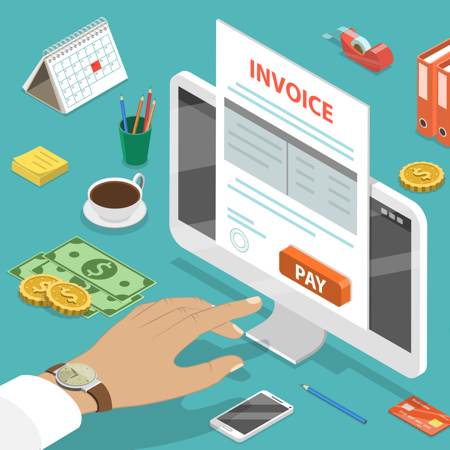Are you planning for your next generation of customers?
 As Baby Boomers and Generation X approach retirement, Millennials and Generation Z are fast becoming the new demographic segments for businesses to court. Gen Zers, now entering teenage and young adulthood, in particular are set to dominate when it comes to purchasing power in the upcoming decades.
As Baby Boomers and Generation X approach retirement, Millennials and Generation Z are fast becoming the new demographic segments for businesses to court. Gen Zers, now entering teenage and young adulthood, in particular are set to dominate when it comes to purchasing power in the upcoming decades.
The new generations differ markedly in their consuming habits from their predecessors both in motivation and methods. For small businesses that want to court this new generation of clients, it is vital to plan ahead and adapt your marketing to stay relevant. As business growth specialists, TaxAgility can show you how to cater your business to the most influential generation of our time.
Marketing to the ‘Digital Native’
Born from the early 1980s and mid-1990s respectively, Millennials and Generation Z are defined by their affinity to digital technology. As pioneers and natives in an age of computers and the Internet, these are consumers who understand advertising very differently from the preceding Boomers and Gen Xers. The advancements in computing and mobile technology have only widened this divide.
Most businesses today have some kind of online presence in the form of a website or corporate accounts on social media platforms, but unless they take into consideration the Internet habits of Gen Z, they may not be getting through to the notoriously elusive demographic. This is a group that is most comfortable doing everything on their phones. However, studies also show that many of them dislike intrusive online ads.
The most successful advertising campaigns that have worked in the internet age generally share two characteristics: shareability and individual-ness. This has given rise to the social media ‘influencer’: these are thought-leaders in lifestyle, fashion and other fields who deliver personalised information about products to their followers. This is one reason that social media advertising has become so popular – hashtags allow users to find and follow trends and attributes that interest them. If you’ve heard of the term ‘viral marketing’ you’ll realise that it often describes the dissemination of hidden adverts such as this.
It’s worth looking at your small business’s current advertising strategy and evaluate whether they meet these criteria – if they don’t, you’re likely missing out on a lot of awareness and potential sales.
Keeping Up with the Digital Joneses
Many modern advertising strategies are constructed around the tried-and-tested method of pitching the product. This was the style that worked with the earlier Baby Boomer generation, and it is a strategy that is dwindling in appeal along with its intended audience. An advertising strategy that engages the new generation has to be conceived from the ground up – you cannot simply repurpose your existing ad campaign for the internet and expect it to go viral.
Consider your story and the identity of your company. You’re looking to build a personality, to tell a story about your small business, and once you’ve planned your journey, you can begin to form a marketing strategy around telling it. Remember the key factors of shareability and individual-ness, they may not be absolute rules, but you will do well to bear them in mind when advertising to your customer base. Consider whether your advert could pass as a piece of content – if it looks like an advert at the outset, then there’s a good chance for it to be blocked or skipped.
Look for professional help
While Gen Z is gearing up to be the most profitable target demographic, it’s also proving the hardest to reach. As specialist small business accountants, we at TaxAgility have plenty of experience in helping new businesses connect with Millennial and Gen Z customers, and we can help you form a plan that will future-proof your business for years to come.
To find out more, get in touch on 020 8108 0090 or fill out our Online Form.
If you found this article useful, you might want to take a look at:
This post is intended to provide information of general interest about current business/ accounting issues. It should not replace professional advice tailored to your specific circumstances.
Property Tax
 Tax is a complicated subject and property tax is no exception. If you own a property or planning to own one, tax planning becomes important because buying, selling or renting out your property is likely to expose you to some form of property tax. In this article, our specialist tax accountants explain:
Tax is a complicated subject and property tax is no exception. If you own a property or planning to own one, tax planning becomes important because buying, selling or renting out your property is likely to expose you to some form of property tax. In this article, our specialist tax accountants explain:
- Stamp Duty Land Tax
- Capital Gain Tax
- Tax on rental income
Stamp Duty Land Tax
When you buy property, you must pay Stamp Duty Land Tax (SDLT). The amount you pay depends on several factors such as if you’re replacing your main residence, buying an additional property, buying a non-residential property, and if the property is freehold or leasehold.
If you are a first-time buyer, then you don’t pay SDLT on properties up to £300,000, and only 5% SDLT on anything between £300,001 and £500,000. If your property is worth more than £500,000 then you will be taxed as though you had already bought a home.
A common question relating to SDLT is if one can reduce the SDLT liability by using a company to purchase a property. The answer is generally no because HMRC applies a 15% SDLT on residential properties costing more than £500,000 if bought by a company, although there are conditions where the 15% rate does not apply, such as when the company acts in its capacity as a trustee of a settlement and purchases a chargeable interest in a residential property. To find out how you can reduce your SDLT liability legitimately, it’s best to discuss your situation with one of our experienced Tax Accountants.
Capital gains tax on property
Whenever you sell a property that has appreciated in value, you may be taxed on the profit that you make. This is capital gains tax and it typically applies to property that’s not your main home, such as buy-to-let property, business premise, land and inherited property. If you sell your home or if you live abroad, different rules will apply.
Like other taxes, there are situations where you can get a tax relief or don’t have to pay capital gain tax on property. For example, you do not need to pay tax on assets you give to your spouse or a charity as a gift.
In the event that you are liable for capital gains tax, how much you need to pay depends on how much capital gains tax allowance you have in that financial year. The good news is, the amount of annual capital gains tax allowance, aka the annual CGT exemption, has been increased by the government over the years and for the 2019/2020 tax year, you can make tax-free capital gains of up to £12,000 and couples who jointly own assets can combine this allowance.
Get in touch with us if you would like to understand more about capital gains tax and the relief associated with it.
Tax on rental income
In its simplest sense, you pay income tax on the profit you make from renting out your property. Additionally, you can also deduct finance cost (mortgage interest, interest on loans to buy furnishings, overdrafts) from rental income, but HMRC has begun to restrict this from 2017 with a mixture of old and new rules and from the tax year 2020-2021 onwards, as a residential landlord, you will get a flat rate of 20% deduction of these costs from your tax liability. The upshot of this is you will be paying more tax and receiving a smaller net profit from your rental income, particularly if you’re a landlord who already has a higher income.
One legitimate tax-efficient way to handle tax on rental income is to set-up a limited company and take advantage of corporation tax rates and dividend tax rates, which are lower than income tax and capital gains tax rates.
Contact the experts
Property tax is immensely complicated and there are numerous reliefs subject to specific conditions which may not be obvious to a property owner. At TaxAgility, our tax accountants excel in personal tax planning, and we’re always available to discuss income tax, trusts and estates, inheritance tax and capital gains tax with you.
Get in touch on 020 8108 0090, or contact us via our Online Form.
This post is intended to provide information of general interest about current business/ accounting issues. It should not replace professional advice tailored to your specific circumstances.
Why outsource your payroll administration

As a business owner, you know that managing payroll in-house can be a complicated affair. The payroll process is time-consuming as the tasks include statutory sick pay, statutory maternity/ paternity/ adoption/ shared parental pay, student loan, holiday pay, bonuses, pension and various National Insurance classes, among other issues like preparation of various forms (such as P11, P35, P45, P46, P60) pertaining to employment.
Spending your time dealing with payroll may not make sense for a small business owner because there are other areas that need your attention. Equally, hiring a dedicated person in-house to manage payroll for a small team seems excessive too. This is why it makes sense to outsource your payroll administration to a professional payroll company like TaxAgility.
Here are the five reasons why outsourcing your payroll administration is a smart move.
Focus on other aspects of your business
As an employer, you are obligated to record your employees’ salary in payroll software, even if they get less than £116 a week. The process involves:
- Calculating deductions (taxes and National Insurance) from their pay.
- Calculating the company’s National Insurance contribution if their earnings are above £157 a week.
- Producing payslips for every employee.
- Submitting their pay and deductions to HMRC in a Full Payment Submission (FPS).
- Recording the payments.
Dealing with payroll is a time-consuming task. Every hour you spend on payroll administration is an hour that could be better spent developing your business or growing your business network. By allowing us to manage your payroll, you can turn your focus back achieving your business goal.
Lower your risks
Payroll is an on-going process that requires constant attention as HMRC is quick to issue a penalty. For example, in addition to paying your employees, you need to pay HMRC for the National Insurance contributions by the 22nd day of every month, otherwise you may have to pay a penalty.
In the event that you have paid your employees but forgotten to send the FPS to HMRC, they may also fine you.
When HMRC introduces a new law, like companies must now provide and pay into a workplace pension scheme for their employees, you need to be in full compliance of the law. The minimum contributions are 5% (2% from employer and 3% from employee) until 5 April 2019, then 8% (3% from employer and 5% from employee) after that day. With us staying on top of this issue, we can help you manage it so you’re compliant with the new law.
Cost saving
Outsourcing your payroll service can be highly cost-effective when you factor in the time spent on creating tax documents and monthly (or yearly) payroll software maintenance cost. You also don’t have to spend time learning the payroll software and manage the upgrade yourself.
Simplified National Insurance contributions
Splitting up into various categories, National Insurance contributions are complex. Understanding the classes – Class 1, 1A, 1B, 2, 3, 3A and 4 – alone require you to a good amount of time reading them. Leave them to the professionals because this is what we do best.
Full year-end payroll services
Every April, you will need to review your payroll reports, give your employees a P60 and prepare your employee records for the next tax year, plus you will also need to let HMRC know that it is your final EPS report of the year. There are certain dates you need to keep in mind, such as:
- Before 5 April: send your final EPS to HMRC.
- After 6 April: update your payroll software and employee payroll records.
- By 31 May: give your employees a P60.
- By 6 July: report employees expenses and benefits to HMRC.
- Our payroll service will gladly help you to manage the year-end payroll process.
Outsource your payroll administration to the professionals
If you want to spend less time on tedious payroll administration and more time on other areas of your business, the best thing you can do is to outsource the work to us. At TaxAgility, our team will provide you with consistent payroll administration as well as one-off payroll exercises like providing your employees with bonuses, overtime payments and commission.
Contact us today on 020 8108 0090 to discuss outsourcing your business’ payroll administration to our experienced accounting team in London. Alternatively, you can get in touch with us via our contact page to arrange a complimentary, no obligation meeting.
If you found this article useful, why not take a look at:
- How to grow your business: outsourcing the work
- Does HMRC object to putting family members on the payroll?
Tax saving tips to maximise your start-up’s potential
 When you’re first starting out in business, it’s essential that you focus as much of your energy as possible on maximising your start-up’s potential. Your time is valuable, and there are better places to spend it than on time-consuming tax issues.
When you’re first starting out in business, it’s essential that you focus as much of your energy as possible on maximising your start-up’s potential. Your time is valuable, and there are better places to spend it than on time-consuming tax issues.
This is why hiring a specialist tax accountant from TaxAgility is so important – we can ensure you’re saving as much money and time as possible, and we also provide you with valuable business information gained from years of experience. Here are some tax-saving tips you can apply to your business.
Know your industry
Knowing your industry inside out is not just good for business, it can also save you money on your taxes. If you keep yourself engaged in what’s going on in your industry, you’ll be the first to know of any new reliefs or allowances approved by HM Revenue and Customs (HMRC). For example, if you’re in the construction industry, knowing how the Construction Industry Scheme (CIS) works is beneficial. If in doubt, check with an accountant specialises in your industry.
Check if you’re eligible for Seed Enterprise Investment Scheme (SEIS)
SEIS is a scheme that offers tax relief to those individual investors that buy shares in new companies. Though you’ll have to give a small chunk of your start-up away in exchange for their investment(s), it can’t hurt to check if you’re eligible. You can receive up to £150,000 of tax-free investment, but unless your company follows the rules laid out on the government web page your investors will not be able to claim the tax relief.
Choose the right business structure
You can start saving on your tax bill in the first month of your start-up’s life if you choose a business structure that’s appropriate to your start-up. Certain structures can allow you to adjust your earnings to avoid certain taxes – for example, if you set yourself up as the director of a limited company, then you can pay yourself in dividends, which you do not have to pay National Insurance Contributions on.
The Making Tax Digital (MTD) scheme is also fast approaching. From 1 April 2019, VAT-registered businesses with a taxable turnover above the VAT threshold of £85,000 are required to use the MTD service to keep records digitally, plus also use software to submit their VAT returns from 1 April 2019. If you haven’t made the switch and chosen a system that can integrate with online accounting easily, then it’s time to talk to an accountant with experience in cloud accounting to find out more.
Work from home
One way to maximise your start-up’s potential when you’re just starting out is to work from home, as you can save money on expensive office rental fees. At the moment, HMRC allows you to claim £4 a week to cover fixed expenses. In addition, you can also claim tax relief for other expenses like telephone calls and electricity for your work area. However, it must be said that you cannot claim things that are used for both private and business, such as rent or broadband access. To find out more about how much household expenses can be reimbursed, visit this EIM01476 page.
Hire an accountant
It can be tempting to try and save money by doing your taxes yourself. However tax laws are complex, and you need a professional to ensure you’re saving as much as possible, within the permitted law. The sooner you hire an accountant, the sooner they can get to work ensuring you’ll only be paying the tax you’re liable to pay.
Accountants for small businesses
At TaxAgility, we are Accountants for small businesses including start-ups. One area we specialise in is business tax for small businesses, where we can show you which tax reliefs you can apply for and any expenses you can claim, potentially saving you thousands of pounds worth of tax.
If you’d like to know more about tax saving tips for your start-ups or small business, contact us today on 020 8108 0090 or get in touch with us via our contact page to arrange a complimentary, no obligation meeting.
If you liked this article, you might also like:
What tax exemptions apply for Christmas gifts, bonuses, and parties?
 Christmas is just around the corner, which means it’s time for an annual refresher on the tax exemptions surrounding Christmas gifts, bonuses, and office Christmas parties.
Christmas is just around the corner, which means it’s time for an annual refresher on the tax exemptions surrounding Christmas gifts, bonuses, and office Christmas parties.
Though these rules apply to all businesses, in this article we are going to focus on how small and medium-sized enterprise (SME) owners should think about these employee benefits in order to maximise the value (and fun) for your employees. Here’s what you need to know to keep your tax liabilities to a minimum.
Christmas gifts
You do not pay tax on Christmas gifts that are considered to be ‘trivial benefits’. In order to be a trivial benefit, a benefit must cost £50 or less and cannot be a reward for their work or performance. It also cannot be cash or a cash voucher.
Gifts that are not trivial are taxed under Class 1A National Insurance, and if the gift can be resold or exchanged for cash then it may be taxed as earnings.
Please note that if your company provides trivial benefits as part of a salary sacrifice arrangement, then you will report it on form P11D on the salary given up and the worth of the trivial benefits. These rules apply to arrangements made after 6 April 2017.
If you’re a director of a ‘close’ company, meaning a limited company run by five or fewer shareholders, then you cannot receive trivial benefits worth more than £300 in a tax year.
Christmas bonuses
Cash bonuses are always going to be taxed, regardless of their size. Any cash gift you give to an employee will count towards their standard earnings and will be taxable under PAYE tax and Class 1 National Insurance Contributions, along with their other earnings.
You may also give tangible and intangible items to your employees as a Christmas bonus, but you will need to declare it on your end-of-year tax form (form P11D) and pay class 1A National Insurance Contributions on the value of the benefit.
Christmas parties
In order to ensure you keep your tax liabilities to a minimum when hosting a Christmas party for your employees, you’ll need to keep in mind:
- The party must be an annual event, not just a rare occurrence.
- The total cost of all parties you host in a given tax year must not exceed £150 per head, including VAT.
- You can either allocate £150 per head for a grand Christmas party or split the amount across a few parties in a given tax year.
- The amount £150 per head can include food & drink, travel expense, and other party-related items.
- If your annual parties do exceed £150 per head, your employees will have to pay tax on the entire amount, not just the value over £150.
- You must invite every employee working for your business or, for a larger SME, every employee working at a particular location.
Experienced tax accountants
Tax is a complex issue but as professional tax accounts, we’re here to help and provide the most tax efficient way to run your business, from Christmas party allowance to taking the money out of your small business, among other tax-related issues.
Contact us today on 020 8108 0090, or get in touch with us via our contact page to arrange a complimentary, no obligation meeting.
If you found this useful, you might also like:
- Tax guide for Christmas parties and Christmas gifts
- Are you aware of the tax rules for corporate gifts?
Xero Accounting: Update your business

At TaxAgility, we understand the importance of proper finance management better than anyone. With online accounting soon to become mandatory due to the Making Tax Digital scheme (MTD), there’s never been a better time to update your account management.
Xero – the right choice
Xero Accounting gives you access to timely, accurate and relevant information at a low monthly cost. It’s an internationally renowned, multi-award winning piece of software. Xero is simple, powerful and compatible with hundreds of third-party apps like PayPal, meaning it integrates seamlessly into nearly every business model. It’s also one of the few online pieces of software that is government approved as fully compatible with MTD.
The advantages of Xero
Built for small business owners – Xero simplifies business accounting for small business owners. You don't have to know any accounting jargon to understand your finances.
Online hosting – As all of your data are stored in the cloud, you can access it from anywhere in the world - you only need an Internet connection. You don't need to worry about backing up your files either, as they will be stored on secure servers with multiple redundancies in place. In addition, there is no need to manually apply software upgrades since the vendor takes care of this for you.
Electronic bank feeds – Xero can be configured to receive your bank statement data automatically, cutting down on administration time. It also presents your data as an electronic bank feed, bringing all of your information together on one screen - no more endless searching through bank statements and invoices.
Automated transactions – Most businesses have recurring, fixed-price transactions, and these repetitive processes are easy to automate. Xero excels at managing repeat payments, plus it also records them for your convenience, letting you view your payments quickly and easily.
Simplified client invoicing – Keeping track of all of your business' invoicing can be hard, and forgotten invoices can hamper your growth if you don't recover money that is owed to you. Xero allows you to set invoice reminders and send your clients emails reminding them about unpaid invoices, so you don't have to manage them yourself.
Flexible reporting – Xero lets you view and share reports and budgets in real-time, so you don't have to wait until the end of the month. It also allows you to condense years of paperwork into simple graphs that plot the shape of your business, how it’s growing and what direction you’re going in. This information is critical in making informed financial decisions about your business. Our accountants can help you make sense of the reports, so you can understand what areas need work and whether your business is on the right track to financial growth.
Easy collaboration – A major benefit of cloud accounting is that you can allow other key users - your bookkeepers and/or your accountants for instance - to access relevant information wherever they are. This means they can review the financial details with you in real time, even over long distances.
Multiple third-party software enhancements – Xero is compatible with over 400 pieces of third-party software that can be used to expand its functionality. For example, the software tool WorkflowMax can aid with project management, and the electronic API Salesforce can offer enhanced Customer Relationship Management (“CRM”) functionality by updating both itself and Xero simultaneously.
Extra benefits of Xero
As Gold Partners with Xero, we have extensive experience in working with the software, having helped businesses to use it since 2011. Working with us gives your business access to all of the perks that only a Gold Partner can provide, including insights from Xero-certified advisors to help you use the software to your advantage.
If you wish to discuss Xero Accounting in more detail, please call us on 020 8108 0090 or fill out our Online Form.
If you found this article useful, why not check out:
Eight top tips for choosing a contractor accountant
 Being a contractor comes with many responsibilities, from communicating with clients to purchasing materials and equipment. With so much to think about, things like finances can easily be pushed aside in favour of more pressing issues. Choosing a specialist contractor accountant can help you to manage your accounts, keep track of your taxes and reduce some of the stress of dealing with your finances.
Being a contractor comes with many responsibilities, from communicating with clients to purchasing materials and equipment. With so much to think about, things like finances can easily be pushed aside in favour of more pressing issues. Choosing a specialist contractor accountant can help you to manage your accounts, keep track of your taxes and reduce some of the stress of dealing with your finances.
Here are our eight top tips for choosing a contractor accountant:
1. Make sure they understand your work
It’s important that your accountant knows about the type of work you do and how they can best help you and your business. For example, they need to understand IR35 tax legislation and how to keep you compliant with it, because if they don't then it could cost you a significant chunk of your income.
2. Assess their qualifications
Before hiring an accountant, ensure they are registered with an official accountancy body, such as the Association of Chartered Certified Accountants (ACCA) or the Institute of Accountants in England and Wales (ICAEW).
3. Decide between a small or large accountancy firm
A smaller accountancy firm tends to offer you a tailored service, and someone is usually available to talk to you whenever you have a question, but they often lack the reputation that bigger firms enjoy. A larger firm may have several accountants well-versed with the regulations pertaining to your area but the service can be highly impersonal. Both have pros and cons, and you need to weight them up before making a decision.
4. Speak to other contractors
Talking to other contractors about their experiences with their accountants can help you understand how you should be using an accountant for your business. It can also give you an insight into the responsibilities your accountant should be taking on.
5. Know what you’re paying for
There are a number of things you can expect from your accountancy firm:
- Annual accounts
- Tax returns
- Payroll (including set-up and ongoing management)
- Self-assessment
- VAT returns
Make sure you find out exactly what your contractor accountant can offer you. Let them know what you need and what you expect to be included in the price. Discuss your business needs with your accountant clearly and make sure you understand what you're paying for.
6. Check reviews from existing clients
A good way of checking if an accountancy firm is reputable or not is by listening to what their existing customers have said. When doing this, you need to ensure that you have a wide variety of sources - don't just rely on online reviews as both bad and good reviews can be fake.
7. Check if they use online accounting
Cloud-based accounting has become so popular that every reputable company has a presence in the online accounting world. The better ones are often part of rewards programs that can offer you certain benefits for pairing with the accounting software. For example, TaxAgility is a gold partner to Xero, meaning we can provide you with numerous advantages as opposed to other firms that don’t hold this status.
Remember that there are various cloud accounting programs, each with different incentives, so it’s always worth checking to see what you’re getting.
8. Make sure you have the option to switch
Not all partnerships are fruitful and in the unfortunate circumstance when things don't work out, then the process of switching should be quick and painless. Before you accept their services, discuss the options of leaving whenever you want to ensure that there aren’t any circumstances that prevent you from making a quick switch.
TaxAgility – the contractor accountants you’re looking for
At TaxAgility, we work hard to provide contractors with the best advice regarding their finances. We offer tailored accountancy services for contractors that are specific to your needs and those of your business. By working with us, we can help you to be in better control over your finances and can ultimately save you time and money.
We can take care of your taxes so that you can concentrate on building your business. We understand what services contractors require from accountants, including IR35 advice, tax returns and annual accounts assessments. That’s why we can provide a comprehensive service to our contractor clients. By working with us, we can ensure that you are prepared for the future and saving you money in the meantime.
For more information on how TaxAgility can help you with your contractor accountancy needs, call us today on 020 8108 0090 or fill out our Online Form.
If you found this useful, you may want to take a look at:
- As a contractor, why do I need an accountant?
- How can management accounting be used effectively?
- Moving from permanent employee to full-time contractor
Digital Tax: what you need to know

October 31 2018 was the deadline for submitting paper self-assessment tax returns. The next deadline (for online submissions) is January 1 2019, then on April 1 2019 the Making Tax Digital scheme (MTD) will make online VAT tax returns mandatory for all businesses above the VAT threshold (£85,000). In less than six months, your taxes will be digital whether you are ready for it or not. As experts in this field, the tax accountants at TaxAgility have compiled together all the information you need to know.
What’s actually required?
On April 1 2019, all businesses above the VAT threshold will no longer be able to keep manual records of their VAT legally. From this point onwards, digital records must be created and stored in appropriate software such as spreadsheets. The data must be able to connect to HMRC via an Application Programming Interface (API). In this case, the API is a specialist accounting software that is compatible with HMRC’s systems and allows for the data to be transferred directly, rather than the figures being manually entered into the HMRC portal.
The software used must also meet other specific requirements, including but not limited to:
- It must be able to keep the required records in digital form and preserve them for up to six years
- It must be able to create a VAT return from digital records (it cannot rely on manual records whatsoever)
- It must be able to provide HMRC with additional data on a voluntary basis
- It must be able to receive information from HMRC about the business’ compliance record.
In most cases, the software you choose should already be approved by the government, in which case it will be capable of this already. However, if you choose independent software, then you will need to know its capabilities before you agree on using it.
A helping hand
Don’t panic if this all sounds overwhelming to you, because there are some tools you can use to help yourself out.
As a business owner, you may have already received an invitation to try the pilot scheme for MTD on a voluntary basis. Although the objective is to help test the systems, getting involved now can prepare you for the changes sooner than later.
On the government website, there is a list of compatible API software that you can use to submit VAT returns. Any of the programs from this list will have all the necessary functions, and you can theoretically choose any one of them. However, some have more support than others: users of Xero, for example, can benefit from the specialist cloud accounting support we offer.
TaxAgility can help with MTD
At TaxAgility, we’ve worked with Xero for such a long time that we’re now gold partners, a position that gives us several benefits we can share with our clients.
For more information on how Xero can help your business into the next era, give us a call on 020 8108 0090 or use our online form.
If you enjoyed this article, you might want to take a look at:
Potholes to avoid with a new start-up
 In a recent post, we talked about five tax-saving tips you need to know if you’re starting a new venture, giving you valuable information whether you’re a seasoned start-up pro or completely new to the entrepreneurial world.
In a recent post, we talked about five tax-saving tips you need to know if you’re starting a new venture, giving you valuable information whether you’re a seasoned start-up pro or completely new to the entrepreneurial world.
In this post, we take it a step further and focus on the potholes you’ll need to avoid to help your start-up flourish during the “growing pains” phase.
Avoid mixing your business and personal expenses
If you mix your business and personal expenses then it becomes far more difficult to keep track of them all. This can lead to you missing out on money that you could have otherwise claimed back.
Mixing business and personal expenses can also land you in trouble with HM Revenue and Customs (HMRC), as claiming business expenses as personal ones (or vice versa) are illegal.
For example, HMRC disagrees with the way many businesses deduct travel expenses from their taxable income. If this happens to you and if you want to bring a case against HMRC, you may end up paying more for the cost of litigation, so consider turning to a business accountant who can help you sort out your taxes at the first place.
Choose an appropriate legal structure
Depending on the size of your start-up, you can choose to set up as a sole trader, establish a partnership or register a limited company. The system and structure you choose will define the paperwork you’ll have to complete upon starting your business, the taxes you’ll be liable to pay, the manner in which profit can be taken out of your business, and your personal responsibilities should your business incur a loss.
There are also other rules to consider - if you need a licence or a permit, if you intend to sell goods or services online, or if you want to trade with EU countries. Discuss with an experienced small business accountant to get the appropriate advice.
Take advantage of tax reliefs and incentives
You should always apply for all the tax relief benefits and incentives available to you. At present, tax relief and incentives for business include Business rate reliefs, Enterprise Zones, Seed Enterprise Investment Scheme (SEIS), Employment Allowance, Annual Investment Allowance, Capital Allowances, Enterprise Investment Scheme, Venture Capital Trust Scheme, Capital Gains Roll-over Relief, Research and development tax credits, Patent Box, Social Investment tax relief, Creative Industries tax relief and Entrepreneur's relief. Discuss with your accountant and see if any tax reliefs are applicable to you.
Get help from an accountant
Frequent mistakes on VAT return, errors on tax forms, and years of making a loss are some of the reasons why HMRC may begin a tax investigation against you. Running a business without having a qualified accountant going through your books is also something that HMRC wants to verify. Get help right away from a business accountant because you may end up saving more time and money.
Experienced start-up accountants
To speak with the business start-up professionals at TaxAgility, get in touch today on 020 8108 0090, or use our contact page to arrange a complimentary, no obligation meeting.
If you enjoyed this article you may also want to read:
3 easy tips to make the most out of cloud accounting

The government’s Making Tax Digital scheme is fast approaching and with all businesses expected to be reporting their tax online by April 2019, time is running out to switch to cloud accounting. At TaxAgility, we have years of experience with Xero and Freeagent accounting software, and we’ve got a few easy tips to make your transition that much smoother.
1. Make sure everyone is involved
When making a transition from an accounting software installed in your local machines to a cloud-based accounting software, you need the right support, particularly if you have an immense amount of data to transfer. Getting your bookkeepers and relevant staff involved as early as possible is key. Don't underestimate the scale of change required either - get help from experts if you think the switch will disrupt your daily operations.
2. Choose the right software
There are many options for cloud accounting software on the market right now and each has its own advantages and disadvantages. For example, if you already understand some basic accounting principles, you may choose more sophisticated software like QuickBooks. However, if you want something that is easy to use without having to learn any accounting principles, consider Xero. Other features to consider depend on your set-up, like if you need to have a payroll function or if you would like to integrate inventory management with an accounting system.
At TaxAgility, we’re gold partners with Xero, which gives us access to exclusive benefits that we can share with you. Our certified Xero experts are also available to help you get the most out of your software. You can learn more about Xero in this post: "Xero Accounting: update your business".
3. Don’t be afraid of asking for help
Just because you’re on track to get everything sorted, doesn’t mean you shouldn’t ask for help. One of the greatest benefits of cloud accounting is the streamlining effect it can have on your business when executed properly. Once integrated into your operations, it would be foolish not to take advantage of it.
Although most cloud accounting software is designed with ease of use in mind, many offer add-ons to allow each business to tailor the software to their own needs further. Professional advice can help you set up the add-ons you may find useful in the future, and get you into the necessary habits that will keep everything running smoothly.
Talk to cloud accounting experts
When you do decide to make the transition, the structure you end up with is likely going to be the one you rely on for many years to come. It’s vital to get it right the first time around, especially as it’s going to dictate how you manage your business finances and taxes going forward.
To find out more about how our tax accountants can get you comfortable with cloud accounting, get in touch on 020 8108 0090 or fill out our Online Form.
If you liked this article, take a look at:



